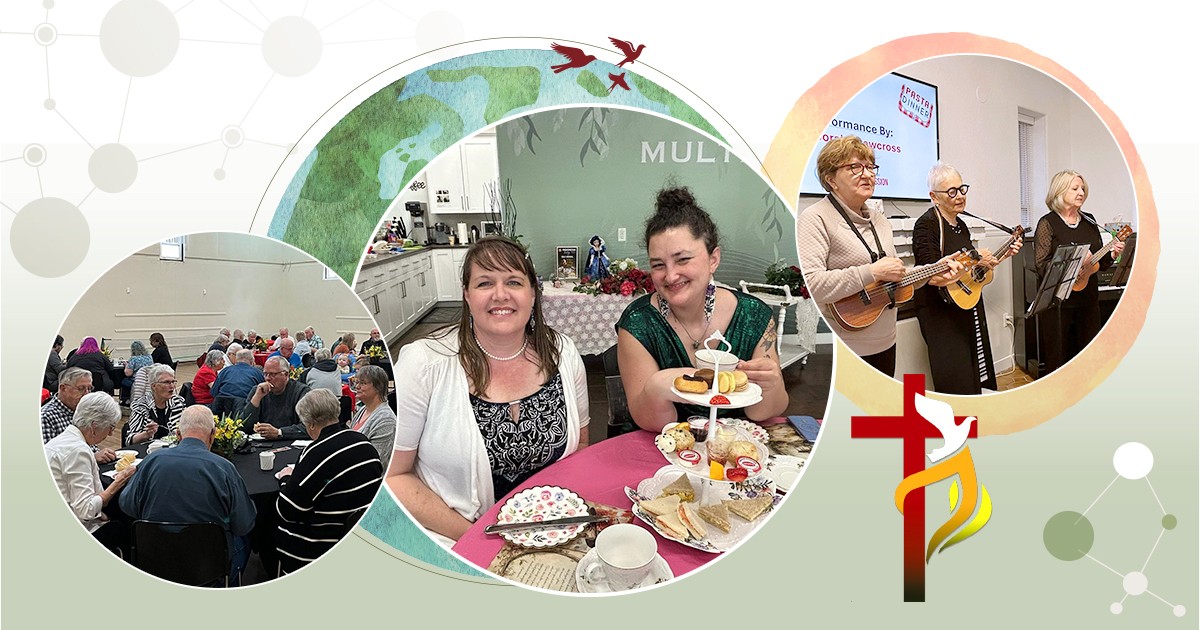I’m the kind of person who used to be indecisive, but now I’m not so sure. I’ll spend hours scanning Netflix for something to watch and then end up turning the TV off and going to bed without watching anything. At a restaurant, I’ll narrow my menu choice down to 12 dishes and then go with my usual. I’m not sure what it is, but when faced with a myriad of choices, I never quite know what to do.
The same can be true when it comes to choosing songs for use in worship: with thousands of songs available, how we do know the right ones to pick? The twin danger is that, when faced with such a vast choice, we select the same old songs, or we choose songs that fail to connect with our congregations. I hope the tips in this article—some theological, some musical—will help you make decisions when it comes to planning and preparing for gathered worship.
With thousands of songs available, how we do know the right ones to pick?
1. What's the Big Idea?
The starting point for selecting songs for worship should come froma recognition that the musical elements of a meeting form one part of the bigger whole that takes place when we worship.In a Salvationist context, the sermon and response are the climax of the meeting, but the sermon doesn’t begin when the preacher gets up, but rather when people walk through the door. The overall direction of a meeting can be strengthened when worship leaders and preachers take time to explore the big idea or theme of the meeting together, so that the song choices help to build momentum toward the sermon. Many hymn books, including The Songbook of The Salvation Army, contain Scripture indexes that link passages of the Bible to songs: looking up the particular text for the meeting can be a great spark of inspiration.
2. How Am I Building Variety Into the Meeting?
In my experience, worship leaders can sometimes feel stuck between two camps: “There were too many new songs this morning” and “That was too traditional this morning,” as they try to strike a balance. Congregations can have strong opinions on the songs used in gathered worship. Rather than get caught in the trap of contemporary versus traditional, a healthier way to approach this challenge is to consider the overall “diet” of worship in music. Try to pick songs from different genres:
- Declarative praise—songs that state and name who God is (e.g., A Thousand Hallelujahs, Praise Is Rising, Holy, Holy, Holy, Lord God Almighty);
- Personal worship—songs that help us express our devotion to God (e.g., This Is My Desire, Goodness of God, I Love You, Lord);
- Lament—songs that express frustration or regret (e.g., When the Music Fades (Heart of Worship), A Thousand Times I’ve Failed);
- Testimony—songs that express corporately what God has done in our lives (e.g., Boundless Love, When I Was Lost You Came and Rescued Me, This Is Amazing Grace).
3. Who Is In My Congregation?
A common mistake that worship leaders make is leading worship for the congregation they wished they had, rather than the one in front of them. You might want to have a Bethel Music congregation—complete with a plethora of electronic pad sounds and spontaneous singing—but if that’s not within your congregation’s frame of reference, then what you prepare and lead is unlikely to make a connection. Worship leaders should take the time to get to know their congregations. In our last corps appointment, we planned meetings with different members of the congregation in mind. We’d think of hymns that Hilary, from an Anglican Church background, would be familiar with. We’d include contemporary songs that Matt and Collette, a young married couple, would find engaging. We’d be sure to include a Salvation Army classic for Marilyn and Carol—two of the saints of the corps. This means that although not everything will connect with everyone, everyone will be able to connect with something.
4. Where Am I Leading People?
Reading about the physical structure of the temple inthe Old Testament gives us a fascinating glimpse intothe way worship was intended to be structured, and this can be a useful pattern for worship leaders to consider when selecting songs. In the outer courts of the temple, people sang psalmsand hymns that were overwhelming declarations of the nature of God for the whole world. The inner courts were reserved for God’s people and were where sacrifices were made. Then, in the centre of the temple, known as the Holy of Holies, God himself dwelt. If we translate this to our contemporary worship sets, we might begin with the declarative and the corporate and then move to the expressive and the individual. An example might be starting with the classic hymn, Praise to the Lord, the Almighty—declaring God’s sovereignty over the world; moving to Lord, Reign in Me—acknowledging God’s sovereignty over our lives; and then singing When I Look Into Your Holiness—offering our response of worship to God. It’s important to beaware of where you are leading people during the meeting,rather than just singing a few songs.
5. Why Are We Worshipping In The First Place?
Above all, when it comes to selecting songs, always start with the “why” questions. Why do you want to use a particular song? Why would it be a good fit for your congregation? And why are we worshipping in the first place? The Westminster Shorter Catechism reminds us that the chief end of humanity—the primary reason for our existence—is to “glorify God and to enjoy him forever.” That’s what all our worship—with and without music—should do: bring glory to God. Ultimately, that’s the first choice we need to make.
CAPTAIN CALLUM McKENNA is the mission and ministry formation co-ordinator at William Booth College in the United Kingdom and Ireland Territory.
Reprinted from SA Worship magazine.
Photos: John Gomes
This story is from:










I’m not a music leader but I really like what you have said. You’ve included everyone in the congregation I think. And the reasons for worship….I feel. Is to get lost in praise to our God, our Father, our Saviour, lover of our souls, and all He is. We at Salvation Connection Point Church, have wonderful God fearing leaders. Thank you for your article. Lord bless you. Arlene